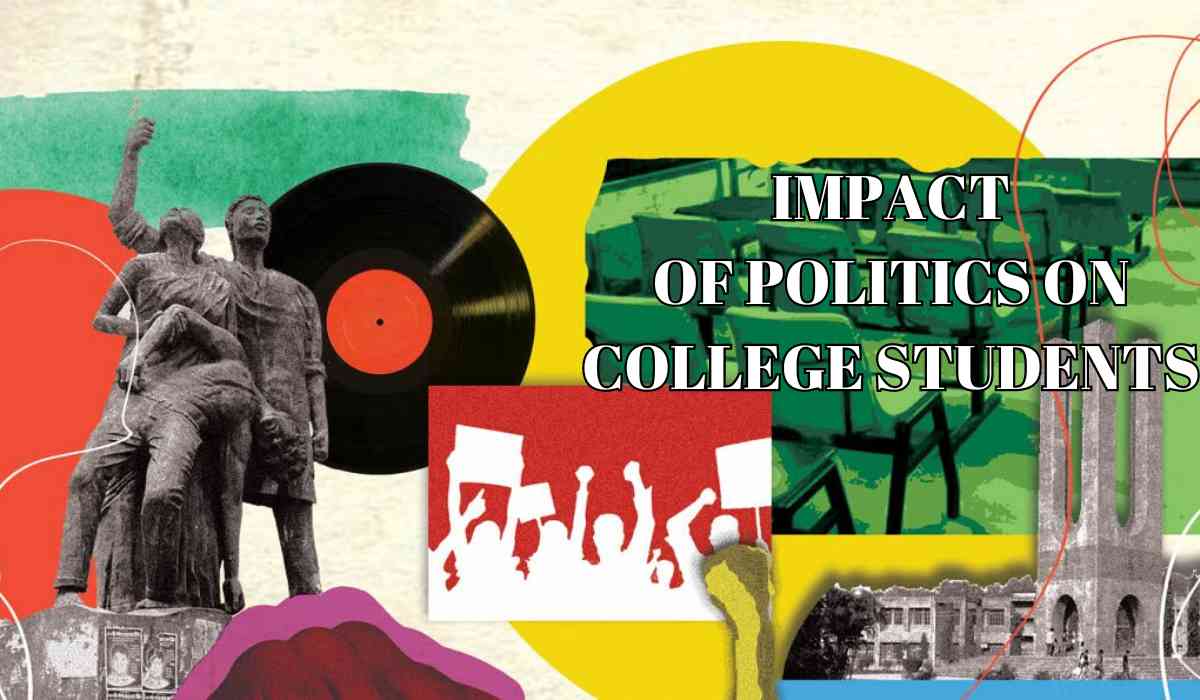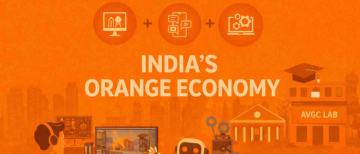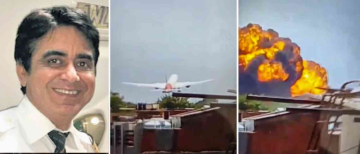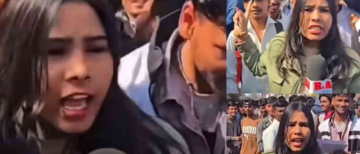Politics is an activity in which a variety of opinions, interests, and behaviours clash, but the clash itself is a necessary precondition for the generation of power.: Political philosopher Hannah Arendt
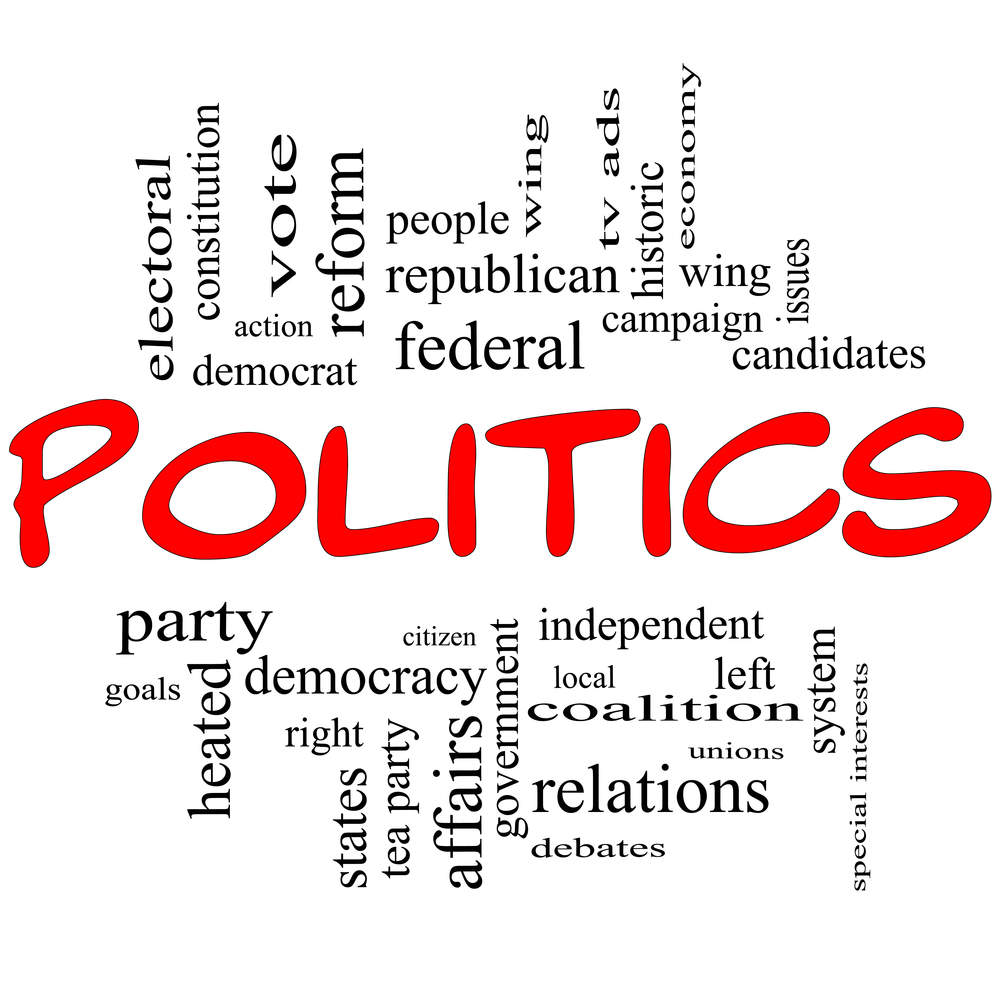
In today's polarised political climate, it's no surprise that college campuses have become hotbeds of political discourse and activism. From debates over free speech to campus protests, the influence of politics on the minds of college students is undeniable.
College students are constantly bombarded with information about politics, from heated debates in the classroom to endless scrolling through social media feeds. And let’s be honest, sometimes it can feel like brains are about to explode from all the political drama.
But have you ever stopped to think about how exactly is politics shaping the way young people think and engage with the world around them? I’m not just talking about the stress of trying to understand complex policies or the frustration of dealing with political correctness. No, I’m talking about the real impact that politics is having on the way we think and interact with the world around us.
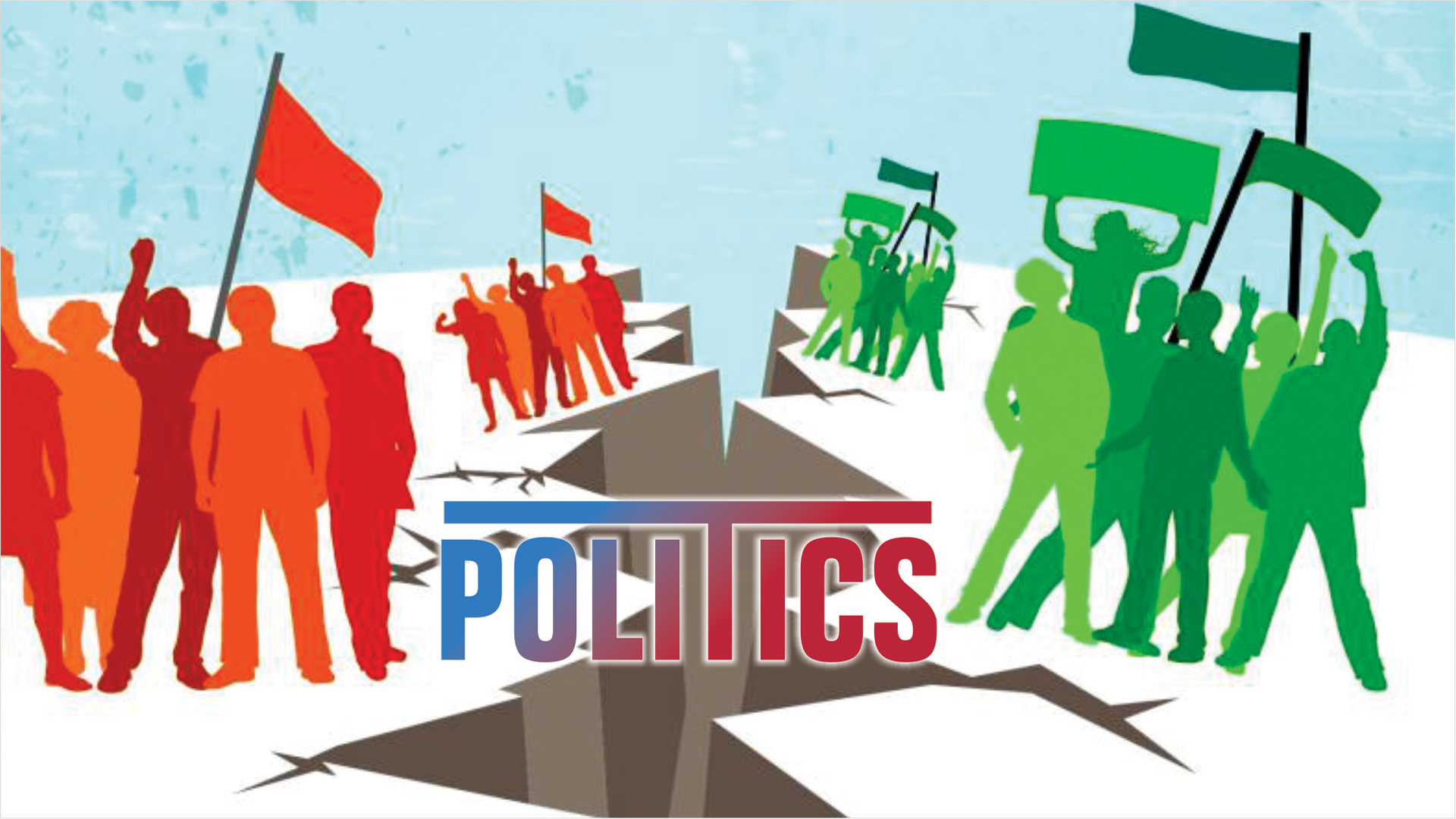
Impact on Thought and Identity
For starters, politics seems to have turned students into armchair politicians, constantly analysing and critiquing every move our leaders make. From dissecting every word in a political speech to endlessly debating the latest headline, it’s like they’ve all become experts in political theory overnight. Who needs a degree in political science when you’ve got Twitter and a strong opinion?
Another significant way in which politics affects college students is through the polarisation of beliefs. In a recent study, researchers found that college students are increasingly identifying with either liberal or conservative ideologies, with little room for middle ground. This polarized mindset can be seen in the way students engage with one another on campus, often leading to heated debates and ideological clashes.
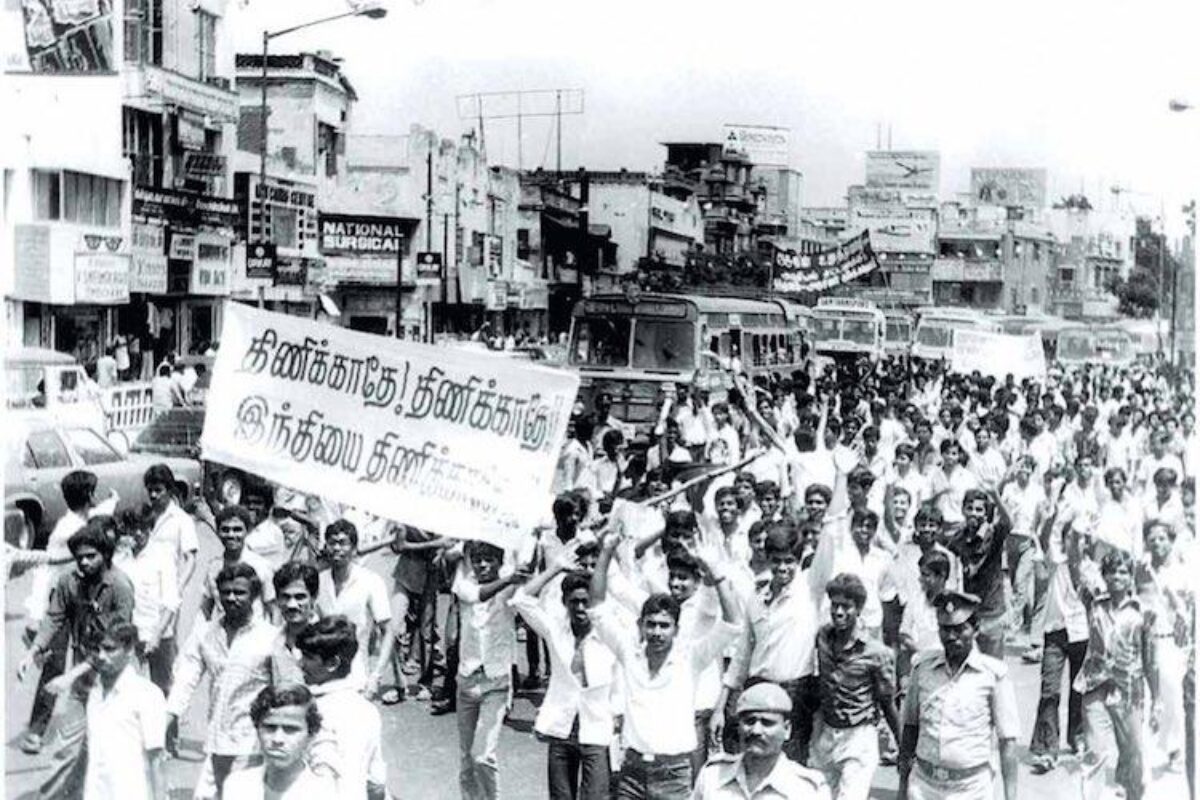
Politics is also shaping the minds of college students through the amplification of activism and social justice movements. From Black Lives Matter to the #MeToo movement, young people all over the world are increasingly becoming involved in political and social causes that matter to them. This activism can be empowering and transformative, giving students a sense of purpose and agency in a world that can often feel chaotic and uncertain.
Additionally, colleges can provide students with the tools and resources they need to navigate the complex world of politics. From critical thinking skills to media literacy, education plays a crucial role in empowering students to think for themselves and engage thoughtfully with political issues.
But perhaps the most noticeable impact of politics on college students is the way it’s shaping their identities. It’s no longer just about what they believe in, but who they believe in. They’ve become so entrenched in their political ideologies that it’s almost like their political views are now a part of their DNA. Forget about finding common ground or compromising- it’s all about standing firm in their beliefs and never backing down.
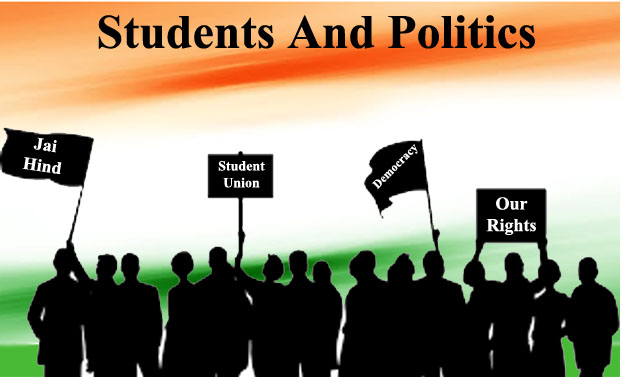
Impact on Mental Health and Stress Levels
However, politics can also have a negative impact on college students, particularly when it comes to fostering open dialogue and critical thinking. In an era of echo chambers and filter bubbles, it's easy for students to surround themselves with like-minded individuals and shut out opposing viewpoints. This lack of exposure to diverse perspectives can hinder students' ability to think critically and engage in productive, respectful debates.
As much as we love to fancy ourselves as political analysts, the reality is that all this political talk is actually driving us a little crazy. It’s like we can’t escape it – even when we’re trying to enjoy a night out with friends, politics somehow manages to creep into the conversation. And don’t even get me started on trying to have a civil discussion with someone from the opposite side of the political spectrum. It’s like trying to navigate a minefield without blowing up.
Furthermore, the current political climate has led to increased levels of stress and anxiety among college students. With constant news cycles and social media feeds filled with polarizing and often distressing information, it's no wonder that many young people are feeling overwhelmed and hopeless about the future. This heightened level of stress can impact students' mental health and academic performance, making it difficult for them to focus on their studies and personal growth.
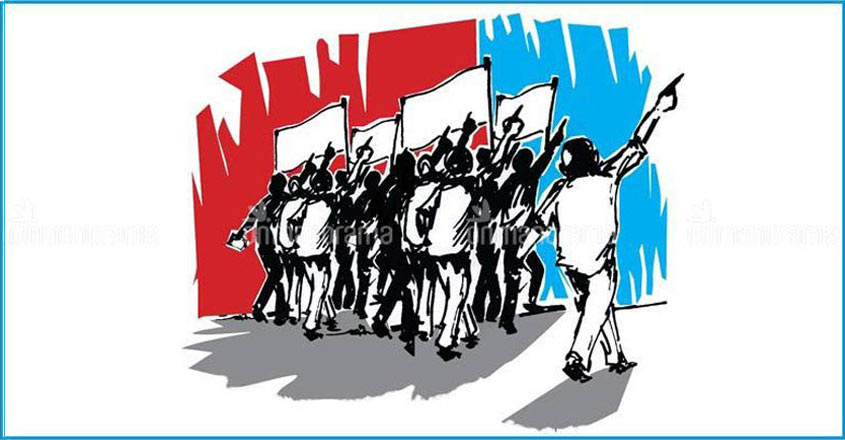
Solutions to lessen politics' detrimental influence
So, what can be done to mitigate the negative effects of politics on college students' minds?
One solution is to promote civil discourse and open dialogue on campus. By creating spaces for students to engage in respectful conversations across ideological divides, colleges can help foster a culture of understanding and empathy.
Or maybe they just need to take a step back and give their poor, overworked brains a break. Let’s remember that there’s more to life than just politics – like enjoying a good movie or going out for a nice meal with friends. And who knows, maybe taking a break from the political circus will actually help them become more open-minded and tolerant individuals.
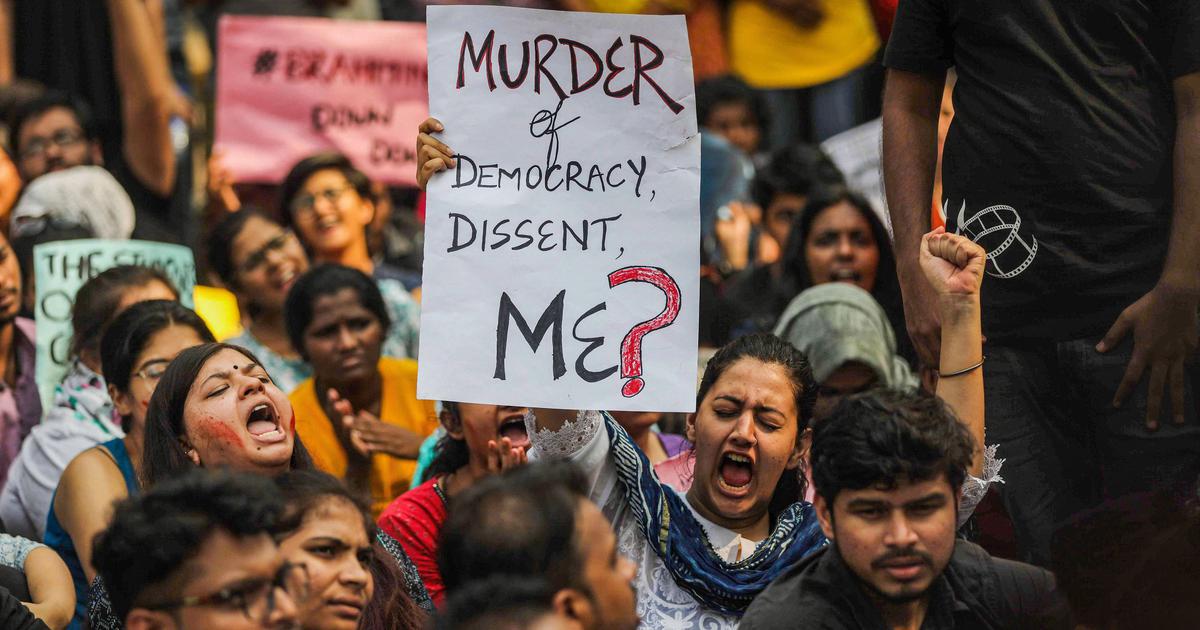
Historical Context of Student Activism in India
A brief overview highlighting some significant incidents and milestones:
Early student movements were instrumental in India's struggle for independence, with students participating in various protests, strikes, and movements against British rule.
- Partition of Bengal (1905): Although not strictly a college student politics case, the Partition of Bengal in 1905 sparked significant political activism among college students in Bengal. The movement against the partition involved many young students who organized protests, boycotts, and other forms of resistance.
- Aligarh Muslim University Student Movement (1920): In 1920, students at Aligarh Muslim University (then known as Muhammadan Anglo-Oriental College) played a significant role in the Khilafat Movement and the Non-Cooperation Movement initiated by Mahatma Gandhi. They organized strikes, protests, and rallies against British rule.
- The Punjab University Riot (1922): In 1922, a riot broke out at Punjab University in Lahore, now in Pakistan, over the issue of reserving seats for Indian students. The protest turned violent, resulting in injuries and property damage.
- The Calcutta Medical College Incident (1926): In 1926, students of Calcutta Medical College protested against the expulsion of their fellow students, leading to clashes with the authorities. The incident raised questions about student rights and academic freedom.
- Bengal Swadeshi Movement (1905-1908): While not limited to college students, many young intellectuals and students were active participants in the Swadeshi Movement in Bengal. They boycotted British goods, promoted indigenous industries, and organized protests against colonial policies.
- Jallianwala Bagh Massacre (1919): Though not exclusively a college student politics case, the Jallianwala Bagh massacre in 1919 galvanized Indian students and youth against British rule. The brutal massacre of unarmed civilians in Amritsar led to widespread outrage and protests across the country, with students playing a significant role.
- Chauri Chaura Incident (1922): The Chauri Chaura incident in 1922, where protesters clashed with the police, resulting in the death of several policemen, led Mahatma Gandhi to call off the Non-Cooperation Movement. Many of those involved in the incident were young activists and students.
- Simon Commission Protests (1928): College students actively participated in the protests against the Simon Commission, which was formed to suggest constitutional reforms for India but had no Indian representation. The boycott and protests by students led to clashes with the police in various parts of the country.
- Salt Satyagraha (1930): The Salt Satyagraha, also known as the Salt March, was a significant civil disobedience movement against British salt monopoly led by Mahatma Gandhi in 1930. College students across India participated enthusiastically, making salt at coastal areas and organizing protests against the salt tax.
- Quit India Movement (1942): College students were at the forefront of the Quit India Movement, demanding an end to British rule in India. Many students participated in strikes, protests, and underground activities, facing repression and arrests by the British authorities.
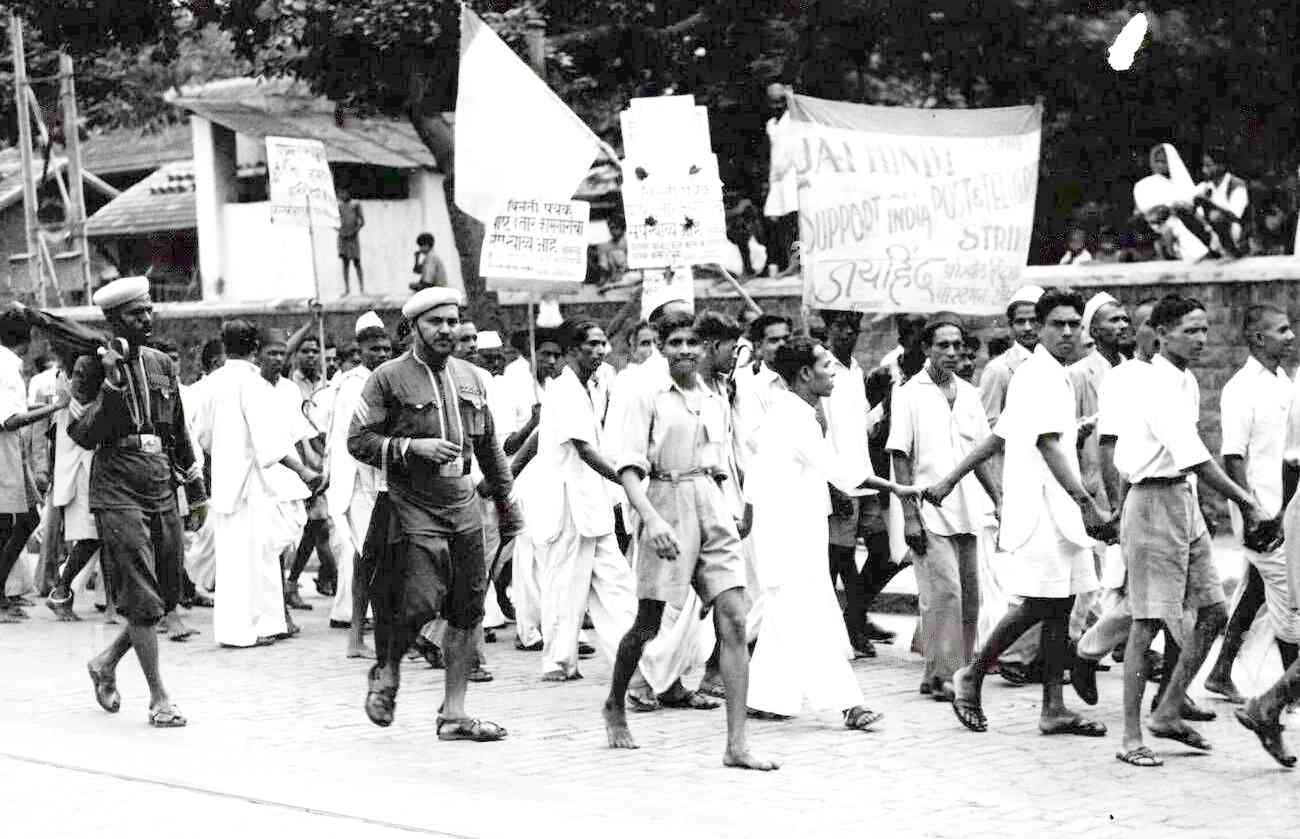
In the post-independence period, student politics continued to play a significant role in shaping Indian society and politics. The 1960s saw a surge in student activism, with movements against corruption, social injustice, and authoritarianism. The 1980s and 1990s saw student movements on various issues such as caste discrimination, reservation policies, and economic reforms.
- Telangana Agitation (1969): Osmania University witnessed a massive student movement demanding the creation of a separate Telangana state. The agitation led to widespread protests and political turmoil in the region.
- Naxalbari Uprising (Late 1960s): Though not limited to college campuses, the Naxalbari uprising had significant involvement from students and youth in various universities across India. It was a Maoist uprising against landlords and the government, particularly active in West Bengal.
- JP Movement (1974): The Jayaprakash Narayan Movement, also known as the Bihar Movement, saw widespread participation from college students across India. It was a protest against corruption and the authoritarian rule of Prime Minister Indira Gandhi.
- The Emergency Period (1975-1977): Witnessed a crackdown on student activism, with many student leaders being arrested or going underground.
- Mandal Commission Protests (1980s): The Mandal Commission report recommending reservations for Other Backward Classes (OBCs) in government jobs and educational institutions sparked protests in several universities across India. The agitation was primarily led by students.
- Anti-Mandal Commission Protests (1990): The implementation of the Mandal Commission recommendations for OBCs (Other Backward Classes) reservation in government jobs and educational institutions, sparked widespread protests and debates across campuses. There were widespread protests across India, particularly in Delhi and other northern states. Students played a significant role in organizing and participating in these protests.
- The Babri Masjid demolition (1992): and the subsequent communal tensions also led to student activism and protests.
- Jessica Lal Murder Case (1999): Though not directly related to student politics, the case gained significant attention from student activists and youth across the country. It led to widespread protests demanding justice for Jessica Lal, who was murdered in a high-profile case involving influential individuals.
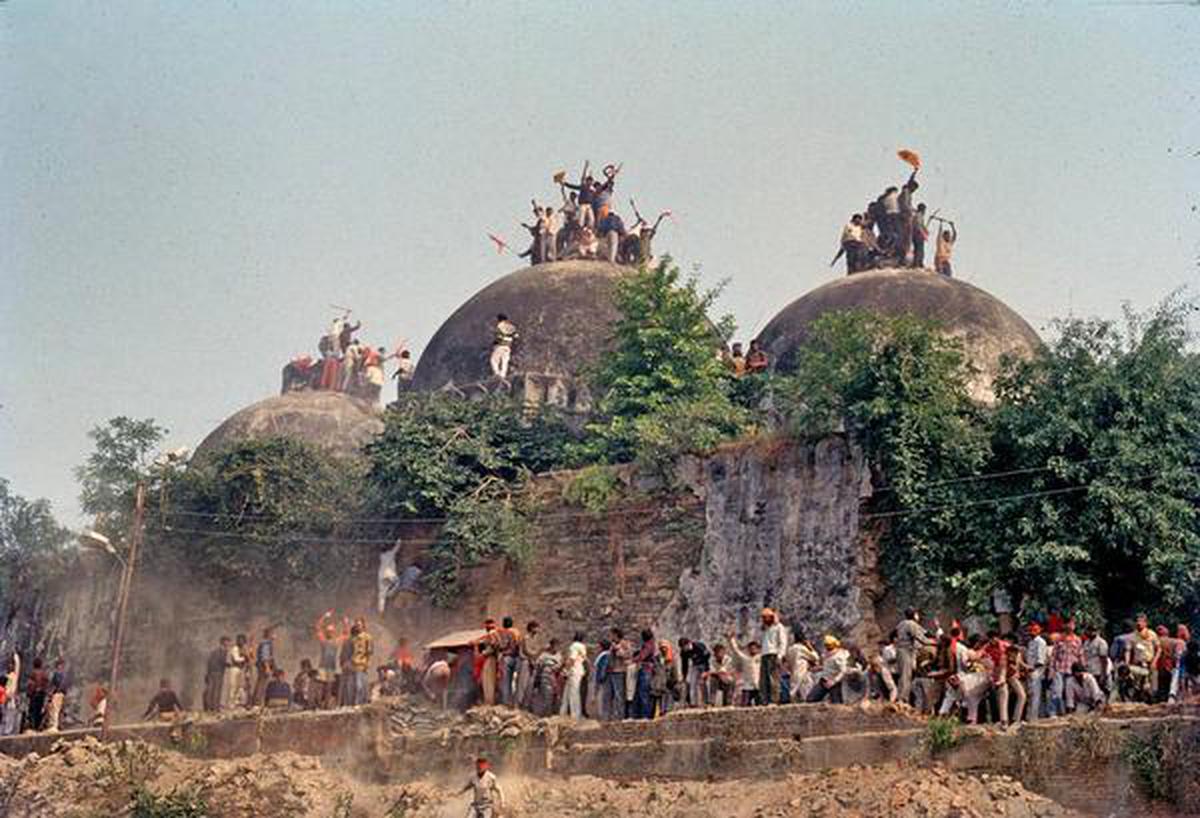
The 21st century witnessed continued student activism on a range of issues, including education reform, environmental concerns, women's rights, and political accountability.
- St. Stephen's College Student Union Election Controversy (Multiple years): Elections in prestigious colleges like St. Stephen's College in Delhi have seen controversies regarding the electoral process, including allegations of unfair practices and rigging.
- Aligarh Muslim University (AMU) Protests (Multiple years): AMU has seen various protests and controversies related to issues such as minority rights, campus politics, and administrative decisions. Several students of Aligarh Muslim University (AMU) were booked for sedition for allegedly raising anti-India slogans during protests against the Citizenship Amendment Act (CAA).
- HCU Student Union Election Controversy (Multiple years): The University of Hyderabad (HCU) has witnessed several controversies surrounding student union elections, including allegations of rigging, violence, and irregularities.
- ABVP vs. Left Student Unions Clashes (Multiple years): There have been numerous instances of clashes between the Akhil Bharatiya Vidyarthi Parishad (ABVP) and left-wing student unions in various universities across India, often involving allegations of violence and ideological differences.
- Kerala Student Union Elections Violence (Multiple years): Kerala has witnessed several instances of violence during student union elections in colleges, with clashes between rival student groups and allegations of electoral malpractice.
- The Nirbhaya case (2012): Sparked nationwide protests, including significant student participation, against gender-based violence and for women's safety.
- Ambedkar Periyar Study Circle Controversy (2015): IIT Madras banned the Ambedkar Periyar Study Circle, a student group, for allegedly criticizing the government and inciting hatred, sparking debates on freedom of expression and autonomy of student bodies.
- JNU Sedition Case (2016): Several students of Jawaharlal Nehru University (JNU) were charged with sedition for allegedly raising anti-national slogans during an event commemorating the hanging of Afzal Guru, a Kashmiri militant convicted for the 2001 Indian Parliament attack. Kanhaiya Kumar, then president of the JNU Students' Union, was arrested on charges of sedition following the JNU controversy.
- Hyderabad Central University Dalit Student Suicide (2016): The suicide of Rohith Vemula, a Dalit PhD student at the University of Hyderabad, sparked nationwide protests and debates on discrimination against Dalit students in Indian universities.
- Ramjas College Violence (2017): Clashes erupted between student groups at Delhi University's Ramjas College during a seminar, leading to violence and widespread debate over freedom of speech on college campuses.
- Banaras Hindu University (BHU) Protests (2017): Students at BHU protested against the administration's handling of a case of alleged sexual harassment on campus, leading to a broader debate on women's safety and gender justice in educational institutions.
- Calicut University Campus Violence (2018): Violent clashes erupted between student groups at Calicut University, Kerala, resulting in injuries to students and damage to campus property.
- Babul Supriyo Incident at Jadavpur University (2019): Union Minister Babul Supriyo faced protests and disruptions during his visit to Jadavpur University in Kolkata, leading to a confrontation between students and authorities.
- Citizenship Amendment Act (CAA) protests (2019-2020): Saw widespread student mobilization against the controversial citizenship law, with universities becoming epicenters of resistance.
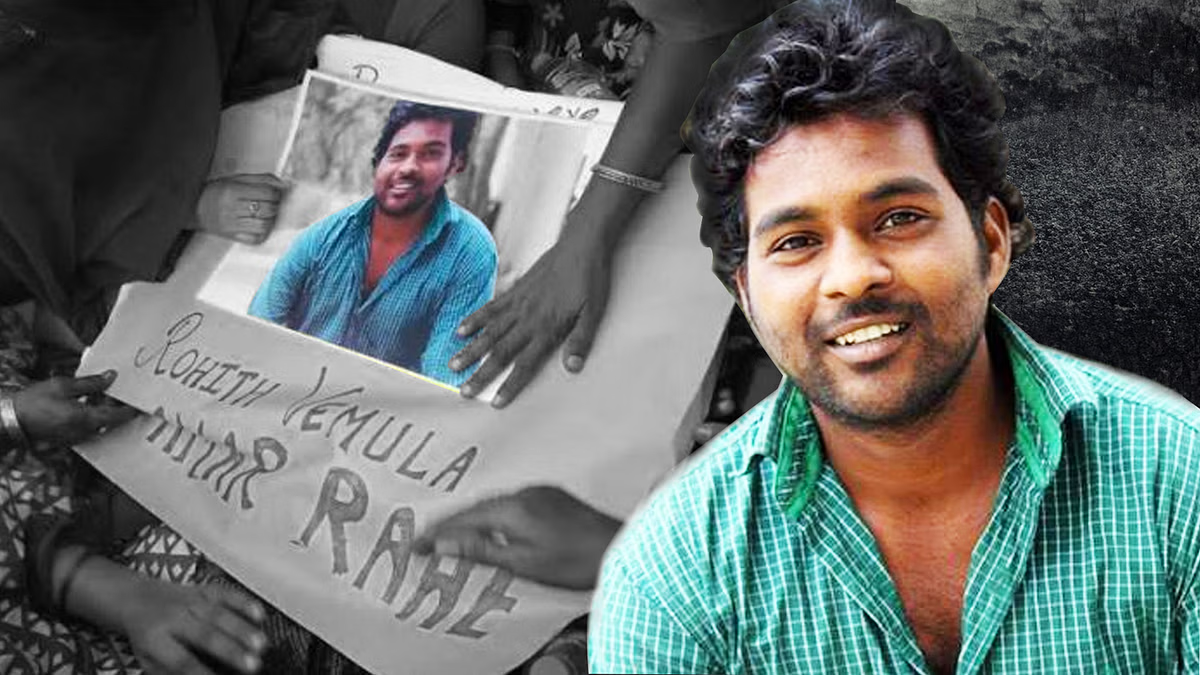
It's important to note that student politics in India is diverse and dynamic, with numerous incidents, movements, and organizations contributing to its rich history.
In conclusion, politics is undeniably shaping the minds of college students across the world. While the influence of politics can be both positive and negative, it's essential for colleges to take proactive steps to help students navigate the complexities of the political landscape. By promoting civil discourse, critical thinking, and activism, colleges can empower students to become informed, engaged citizens who are capable of shaping a brighter future for themselves and their communities.
Input from agencies
Image Source: Multiple agencies
© Copyright 2024. All Rights Reserved Powered by Vygr Media.

